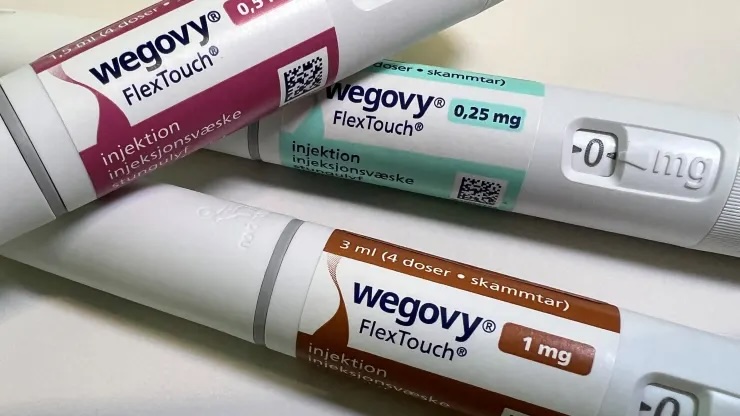Are you considering GLP-1 drugs like Ozempic or Wegovy for weight loss? Before you jump on the trending prescription bandwagon, discover the shocking side effects and learn about safer, natural alternatives to boost your GLP-1 levels.
The GLP-1 Revolution: Miracle or Menace?
Glucagon-like peptide-1 (GLP-1) receptor agonists, such as semaglutide, have taken the weight loss world by storm. But at what cost?
The Dark Side of GLP-1 Drugs: 4 Alarming Side Effects
- Gut-Wrenching Reality: Severe Gastrointestinal Issues
- Nausea, vomiting, and diarrhea are common
- Some users report debilitating abdominal pain
- Pancreas Under Attack: Pancreatitis Risk
- Inflammation of the pancreas linked to GLP-1 drugs
- Potentially life-threatening condition
- Thyroid Tumors: A Looming Threat?
- Animal studies show increased risk of thyroid C-cell tumors
- Human implications remain unclear, but concerning
- The Silent Muscle Thief: Unexpected Muscle Loss
- GLP-1 drugs may cause significant muscle atrophy
- Particularly dangerous for older adults
Natural GLP-1 Boosters: 5 Science-Backed Strategies
Why risk prescription side effects when you can naturally increase your GLP-1 levels? Try these proven methods:
- Power Up with Protein
- Beef, fatty fish, and eggs stimulate GLP-1 production
- Include protein in every meal for optimal results
- Move Your Body, Boost Your GLP-1
- Both cardio and strength training increase GLP-1 levels
- Aim for 150 minutes of moderate exercise weekly
- Fast Your Way to Higher GLP-1
- Intermittent fasting enhances GLP-1 secretion
- Improved glucose metabolism and weight management
- Probiotics: Your Gut’s GLP-1 Allies
- Certain probiotic strains increase GLP-1 levels
- Try yogurt, kefir, or sauerkraut for a natural boost
- Berberine: The Natural GLP-1 Enhancer
- Plant compound shown to increase GLP-1 production
- Consult a healthcare professional for proper dosage
The Bottom Line: Natural vs. Prescription GLP-1
While GLP-1 drugs offer rapid weight loss, they come with significant risks. By adopting natural GLP-1-boosting strategies, you can:
- Support healthy weight management
- Improve blood sugar control
- Avoid potentially dangerous side effects
Remember: Always consult with a healthcare professional before starting any new supplement or diet regimen.
Are you ready to boost your GLP-1 levels naturally? Which strategy will you try first? Share your thoughts in the comments below!
References
- FDA. (2021). Highlights of Prescribing Information: Ozempic (semaglutide).
- Monami, M., Nreu, B., Marchionni, N., & Mannucci, E. (2014). A meta-analysis of serious adverse events reported with exenatide and liraglutide: acute pancreatitis and cancer. Diabetes Research and Clinical Practice, 105(2), 267–276.
- Rosenstock, J., Allison, D., Birkenfeld, A. L., Blicher, T. M., Deenadayalan, S., Jacobsen, J. B., . . . & Marso, S. P. (2018). Effect of additional oral semaglutide vs sitagliptin on glycated hemoglobin in adults with type 2 diabetes uncontrolled with metformin alone or with sulfonylurea: The PIONEER 3 randomized clinical trial. JAMA, 319(15), 1580-1590.
- Andersen, A., Lund, A., Knop, F. K., Vilsbøll, T., & Gluud, L. L. (2018). The clinical effect of glucagon-like peptide-1 receptor agonists on cardiovascular risk: A systematic review and meta-analysis of randomized controlled trials. Diabetes, Obesity and Metabolism, 20(3), 0-0.
- Gannon, M. C., & Nuttall, F. Q. (2006). Control of blood glucose in type 2 diabetes without weight loss by modification of diet composition. Nutrition & Metabolism, 3(1), 16.
- Holst, J. J. (2013). The physiology of glucagon-like peptide 1. Physiological Reviews, 87(4), 1409-1439.
- Ahren, B. (2009). Islet G protein–coupled receptors as potential targets for treatment of type 2 diabetes. Nature Reviews Drug Discovery, 8(5), 369–385.
- Samah, S., Ramasamy, K., & Lim, S. M. (2017). Probiotics for the management of type 2 diabetes mellitus: A systematic review and meta-analysis. Diabetes Research and Clinical Practice, 131, 140–152.
- Dong, H., Wang, N., Zhao, L., Lu, F., & Berberine in the treatment of type 2 diabetes mellitus: A systemic review and meta-analysis. Evidence-Based Complementary and Alternative Medicine, 2012, 591654.





